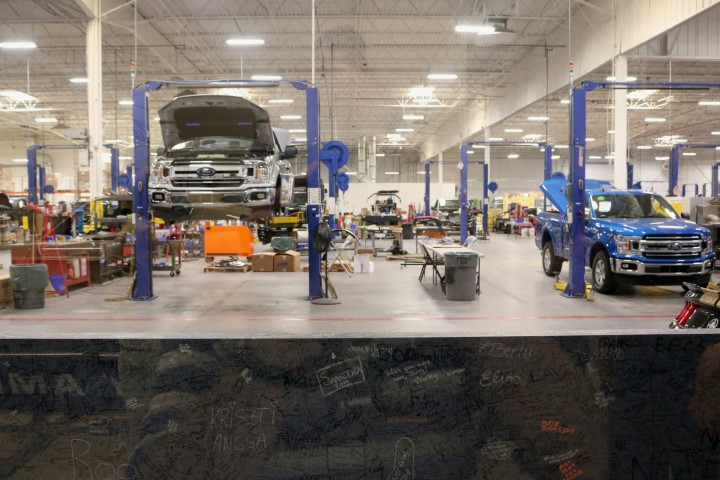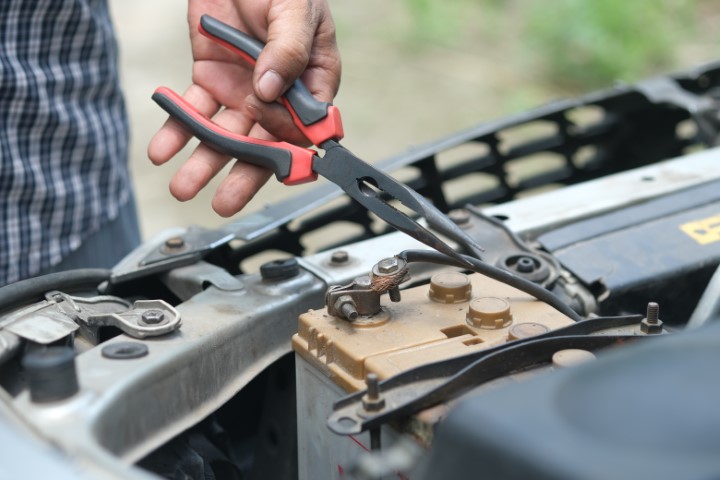 The realm of auto mechanics has long been a field where skill and experience are highly valued. It’s a profession that combines technical know-how with practical problem-solving, appealing to those who prefer hands-on work and have a passion for automobiles. As technology advances and vehicles become more complex, the question arises: how important is formal education to Excel in Auto Mechanics?
The realm of auto mechanics has long been a field where skill and experience are highly valued. It’s a profession that combines technical know-how with practical problem-solving, appealing to those who prefer hands-on work and have a passion for automobiles. As technology advances and vehicles become more complex, the question arises: how important is formal education to Excel in Auto Mechanics?
Traditionally, auto mechanics have learned their trade through apprenticeships and on-the-job training, gaining skills honed over years of experience. This path has produced generations of skilled mechanics experts in diagnosing and fixing various automotive issues. However, the industry is evolving rapidly, with new technologies like electric and hybrid vehicles changing the landscape it might be important to Excel in Auto Mechanics.
In this context, students and aspiring auto mechanics often ponder the importance of higher education in their career paths. While balancing schoolwork and possibly searching for services to do my homework, they might wonder if a college degree or advanced automotive training is necessary to excel in this field. Let’s delve into the various aspects of education and training in auto mechanics to determine their role in shaping a successful career in this dynamic industry.
1. The Role of Formal Education in Auto Mechanics
The first point to consider to Excel in Auto Mechanics is the role that formal education plays in the field of auto mechanics. Technological advancements in automotive design and engineering have made modern vehicles more complex. This complexity often requires a deeper understanding of various systems, from traditional combustion engines to electric powertrains and computerized diagnostics.
Formal education in auto mechanics can provide foundational knowledge crucial to understanding these complex systems. Technical schools and community colleges offer programs that cover a broad range of topics, including engine repair, brake systems, electrical systems, and more. This comprehensive education can be invaluable for a beginner starting in the field.
Moreover, formal education often includes training on the latest technologies and tools used in the industry. As vehicles evolve, staying updated on the latest advancements is crucial. Educational institutions often partner with automotive companies, providing students access to cutting-edge technology and training that might not be readily available in a traditional garage setting.
2. Experience and On-the-Job Training
While formal education is valuable, experience and on-the-job training are equally important in auto mechanics. A significant portion of learning occurs when one is physically working on vehicles, facing various challenges, and finding practical solutions to real-world problems.
Hands-on experience allows mechanics to apply their knowledge in practical scenarios, enhancing their problem-solving and technical expertise. Many skills in auto mechanics are honed through practice and repetition, which can only be achieved through actual work on vehicles. This experiential learning is crucial in developing the finesse and confidence required to excel in this field.
Furthermore, on-the-job training often exposes a wider variety of vehicles and problems than a formal educational setting can offer. Working in a garage or workshop allows aspiring mechanics to learn from experienced professionals, gaining insights and tips not found in textbooks. This form of mentorship and practical learning is vital to becoming a proficient auto mechanic.
3. Balancing Education and Practical Experience
The ideal path for aspiring auto mechanics to Excel in Auto Mechanics is likely a balance of formal education and practical experience. Both aspects bring unique strengths to a mechanic’s skill set. Formal education lays the groundwork for fundamental knowledge and exposure to new technologies, while hands-on experience builds practical skills and real-world problem-solving abilities.
For students considering a career in auto mechanics, enrolling in a technical program can provide a structured learning environment and a broad base of knowledge. Simultaneously, seeking apprenticeships or part-time work in automotive workshops can offer the invaluable experience needed to apply and deepen this knowledge.
It’s also worth considering the role of certifications and specialized training. Certifications from recognized organizations like ASE (Automotive Service Excellence) are highly regarded in the industry and can enhance a mechanic’s credibility and job prospects. These certifications often require formal education and practical experience, highlighting the importance of a well-rounded approach to learning in this field.
4. The Evolving Landscape of Automotive Technology
The automotive industry is undergoing a significant transformation with the advent of electric vehicles (EVs), autonomous driving technology, and advanced computer systems. This shift redefines the skill set required for auto mechanics, making continued education and adaptation more important.
The rise of EVs, for instance, requires mechanics to understand electrical systems and battery technology, areas previously not a focus in traditional automotive repair. Learning about these new technologies is crucial for mechanics wanting to remain relevant and competitive. Higher education programs are increasingly incorporating these subjects into their curriculum, offering students early exposure to future automotive trends.
Autonomous driving and advanced driver-assistance systems (ADAS) are other areas where technology advances rapidly. These systems rely on a combination of computer science, sensors, and artificial intelligence, presenting a new set of challenges and learning opportunities for auto mechanics. As vehicles become more like computers on wheels, mechanics will need to develop skills akin to those of IT professionals, blending traditional mechanical knowledge with digital expertise.

Final Thoughts
In conclusion, while higher education is not an absolute necessity to excel in auto mechanics, it certainly provides a strong foundation and a competitive edge in a rapidly evolving industry. The blend of formal education and hands-on experience prepares aspiring mechanics for the challenges of modern automotive technology and repair work.
For students and aspiring mechanics, the decision to pursue formal education should be weighed against personal learning preferences, career goals, and the specific requirements of the automotive industry in their region. In an era where technology is advancing rapidly, continuous learning—whether through formal education or practical experience—remains key to success in the field of auto mechanics.
Ultimately, a career in this field is as much about lifelong learning as it is about initial training. Whether through classes, workshops, or daily work experience, ongoing education is essential to keep pace with technological advancements and to ensure excellence in this dynamic and rewarding field.










